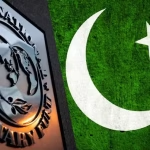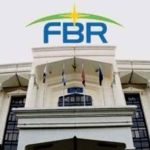Pakistan is anticipated to make debt repayments of more than $1 billion to two international commercial banks early next month, despite the government’s challenging effort to avert sovereign default and the fact that there aren’t very many gross foreign currency reserves remaining.
According to sources in the ministry of finance, the government will pay back two loans to Gulf banks in the first week of January. These loans had been secured for a year with the expectation that the lenders would further defer payments when the loans matured. Foreign lenders were not able to fulfil their commitments to Pakistan, however, due to warnings from their credit ratings that there was a high likelihood of default.
Separate repayments of $600 million and $415 million will be paid to two commercial banks in Dubai. These repayments are anticipated to further reduce the already vulnerable foreign currency reserves, which are now valued at around $6 billion, unless new loans are arranged. Regarding this story, the Ministry of Finance made no comments.
Pakistan’s economic issues have become worse after the International Monetary Fund (IMF) failed to confirm an ad hoc mission visit planned for October 26. The possibility of default has grown, and former finance minister Miftah Ismail regularly warned that the country may default if the IMF programme were to fail.
However, Pakistan “will not default” on its foreign debt, according to Finance Minister Ishaq Dar, who made this remark on Wednesday. This is because the government has secured the $31-32 billion required for the current fiscal year 2023.
Thoughtful investors were not calmed by Dar’s early-morning lecture, as the stock market dropped another 524 points after his comments. Since the dollar isn’t accessible at this rate in the open market, the rupee continued to lose value and ended on Wednesday at more than Rs226.37 to the dollar, a number that has taken on symbolic meaning.
Between Rs. 25 and Rs. 30 per dollar now separate the black market and interbank pricing.
The $32 billion plan was extremely optimistic to succeed in the absence of the IMF’s protection, according information received by The Express Tribune. As part of its external funding plan, the government has proposed floating Eurobonds as a way to raise $1.5 billion. An extra net $300 million is predicted as a result of Naya Pakistan Certificates (NPC).
Instead of the over $7 billion in foreign commercial loans anticipated, the Ministry of Finance still anticipates $6.3 billion to materialise in the current fiscal year—a number that again appears very optimistic.
The government is banking on China renewing its $3.5 billion in international commercial loans and non-Chinese banks not calling in their $1.3 billion in loans. According to the finance ministry, a $700 million Chinese commercial loan that Islamabad had previously repaid will come shortly.
However, neither Chinese nor non-Chinese commercial banks have so far made loans due to Pakistan’s subpar credit rating having a detrimental impact on their total balance sheets.
The government anticipates being able to get fresh foreign commercial loans totalling $1.5 billion for the current fiscal year, although this expectation may not be realised if the IMF programme is not resurrected. Politically speaking, the government cannot afford the interest rates that international commercial banks are now demanding, which are much higher than 10%.
The loans obtained by Pakistan from the London Bank the next week were obtained at the quoted rate plus 2 to 2.2%. According to the sources, even at the current Libor rate, the whole expense will be over 6%, which is over half of what the banks are now asking for.
The head of the IMF mission in Pakistan, Nathan Porter, asked at the most recent meeting that Islamabad for the rupee to appreciate to its actual value—a demand that seems to conflict with the administration’s objectives.
The government’s objectives also seem to be in the wrong place, as seen by its greater focus on preventing money smuggling than on fixing the root causes of it. Prime Minister Shehbaz Sharif presided over a meeting on Wednesday to lower smuggling and enhance the FBR’s capacity to recover money via enforcement, according to a news statement from the PM’s office.
The government correctly predicts that it will be successful in securing the $7 billion loan that China and Saudi Arabia have agreed to roll over.
While Pakistan has asked China to carry over the $4 billion maturing in this fiscal year, Saudi Arabia has already carried over $3 billion.
The international creditors are expected to provide the finance ministry $11 billion, but whether or not they do so relies on the IMF program’s resurrection. Pakistan has received significant assistance so far from the Asian Development Bank, but the World Bank is appealing to the IMF.









